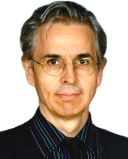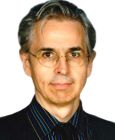Fear
The Latest Chapter in the "Sonic Attack" Saga
The "sonic attack" suspects are almost certainly deceased.
Posted April 2, 2019
For nearly two years now, we have heard claims that US Embassy staff in Havana, Cuba were exposed to an unknown energy source that made them sick. If anyone can present convincing evidence that this is true – be it sonic, microwave or otherwise, I will pull the plug on my Psychology Today column. That’s how clear and compelling the evidence is.
There remains no concrete proof for an attack on American Embassy staff in Havana involving sonic weapons, microwaves or any other mysterious energy force. Despite this, misinformation abounds. While I have the greatest respect for the CBS program 60 Minutes, a recent segment lent credence to the likelihood that Embassy staff and their families were exposed to some type of mysterious energy force. But there is not enough compelling evidence that this is true. CBS News reporter Steve Dorsey even noted that there have been “several studies confirming that they have in fact been injured.” He was clearly referring to two major studies that have been conducted on Embassy staff patients, one in the Journal of the American Medical Association, the other in a lesser known journal that was authored by Dr. Michael Hoffer at the University of Miami. In this instance, CBS News may not have consulted with critics of these studies. If they had, they would not have not made the claims they did. Both studies of the Embassy staff patients were remarkably flawed (see my previous columns). The evidence points squarely to mass psychology, Cold War paranoia, tinnitus, and insects.
Suspects in ‘Attacks’ Deceased
Let’s clear up one common misconception: that the culprits are still at-large. Those responsible for the ‘attacks’ on American Embassy staff in Cuba have been identified. They were two separate groups of Cuban nationals. I say “were” because the members of both groups who were involved are almost certainly dead. While there has been much speculation as to whether they were working with foreign governments such as Russia or China, it is now clear that neither group was.
After one of the early attacks, an Embassy staffer involved had the presence of mind to record the mysterious sound that corresponded with their feeling unwell. The recording was then played back for new staff who were being stationed in Havana. The recording helped them to identify new attacks. A Cuban government scientist initially linked the sounds to the Jamaican Field Cricket, a.k.a. Gryllus assimilis. However, a more recent analysis by Alexander Stubbs of the University of California at Berkeley has turned the spotlight on another suspect: Anurogryllus celerinictus or the Indies Short-tailed Cricket. Several other recordings by Embassy staff were played for a specialist in Caribbean entomology. His No. 1 suspect: Cuban cicadas.
When searching for the answers to seemingly mysterious events, stick to the mundane, not the exotic; stick to the facts, and above all, stick to science, not science fiction.
References
Bartholomew, Robert E., and Perez, Dionisio F. Zaldivar (2018). “Chasing Ghosts in Cuba: Is Mass Psychogenic Illness Masquerading as an Acoustical Attack?” The International Journal of Social Psychiatry 64(5):413-416.
Bartholomew, Robert E. (2018). “Neurological Symptoms in US Government Personnel in Cuba.” Letter. Journal of the American Medical Association 320(6): 602 (August 14).
Bartholomew, Robert E., and Perez, Dionisio F. Zaldivar (2018). “Sonic Attack Claims Stir Controversy in the United States.” Op Ed. Swiss Medical Weekly, February 23: 1-2.
Bartholomew, Robert E. (2018). “’Sonic Attack’ in Cuba Caused ‘White Matter Damage:’ The Facts Don’t Add Up.” The Skeptical Inquirer 42(2):8-9 (March-April).
Bartholomew, Robert E. (2018). “The ‘Sonic Attack’ on U.S. Diplomats in Cuba: Why the State Department Claims Don’t Add Up.” The Skeptic (United States) 21(4):8-12.
Bartholomew, Robert E. (2017). “Politics, Scapegoating and Mass Psychogenic Illness: Claims of an ‘Acoustical Attack’ in Cuba are Unsound.” Journal of the Royal Society of Medicine 110(12): 474-475 (December).


